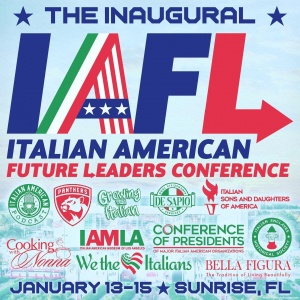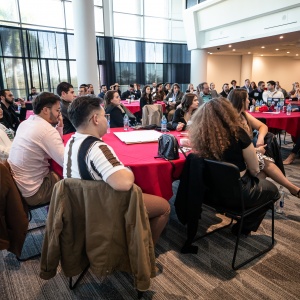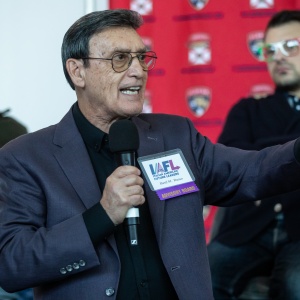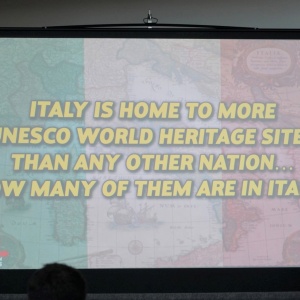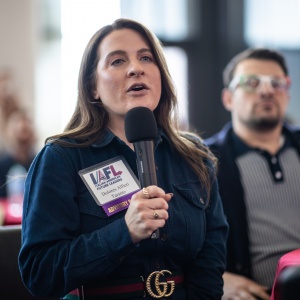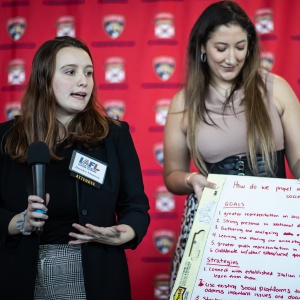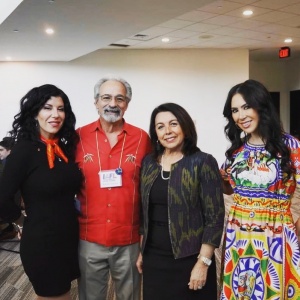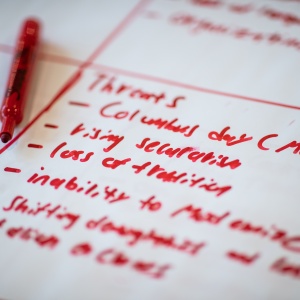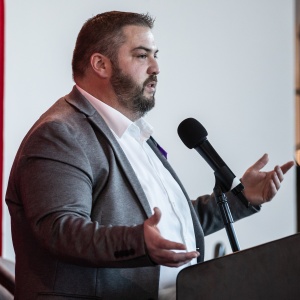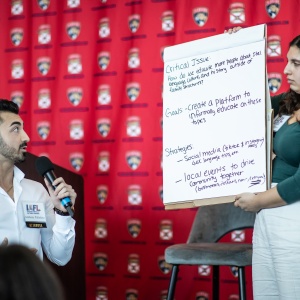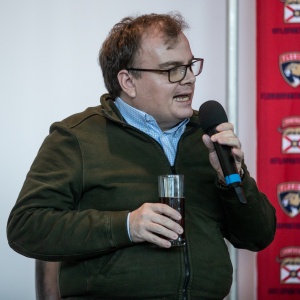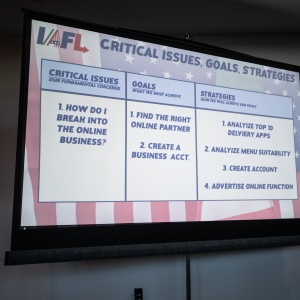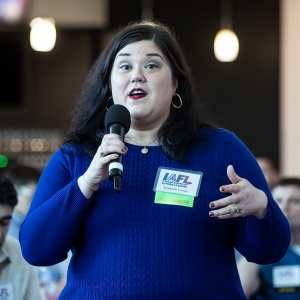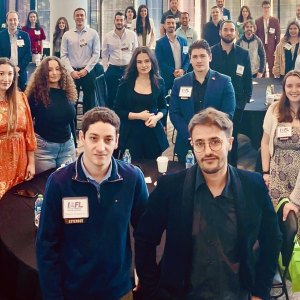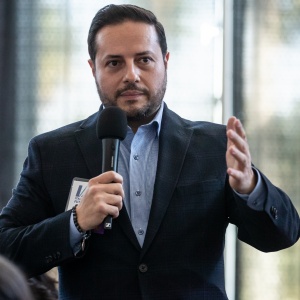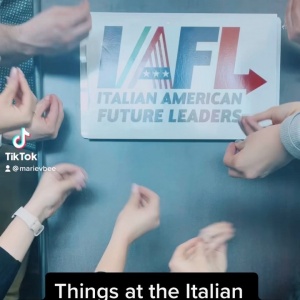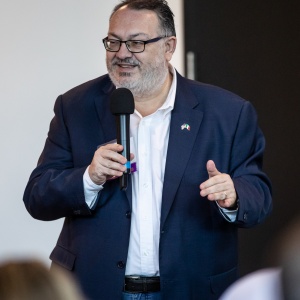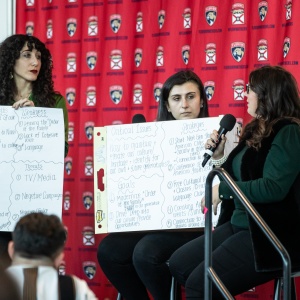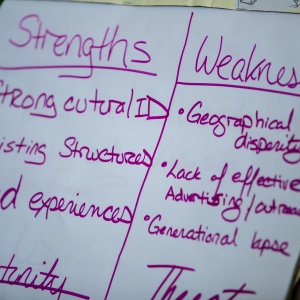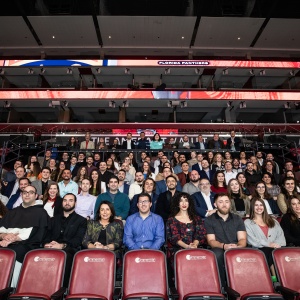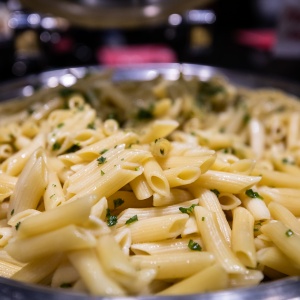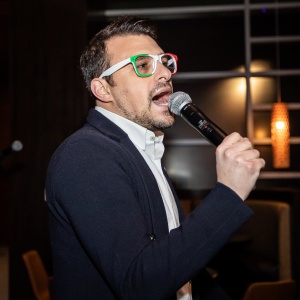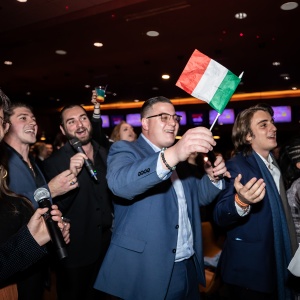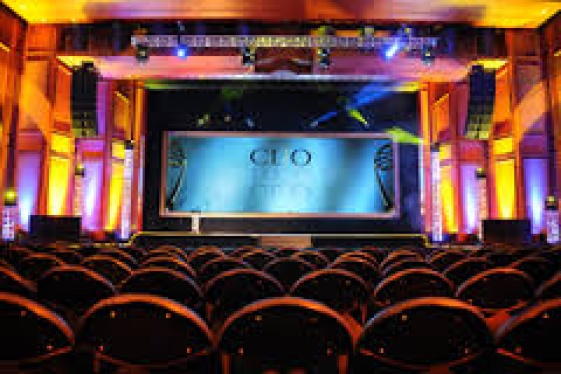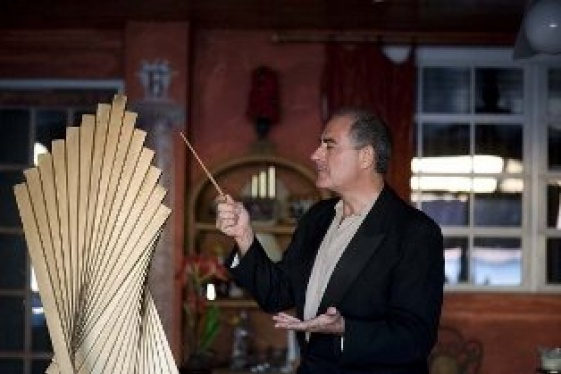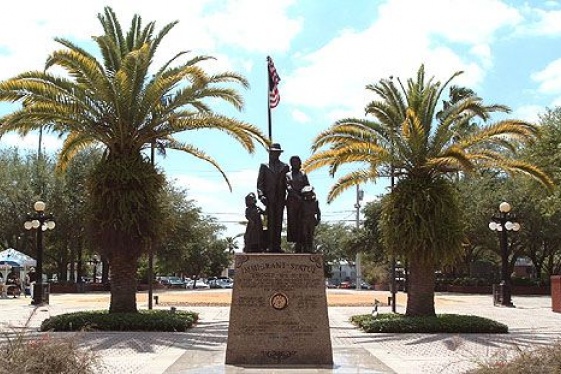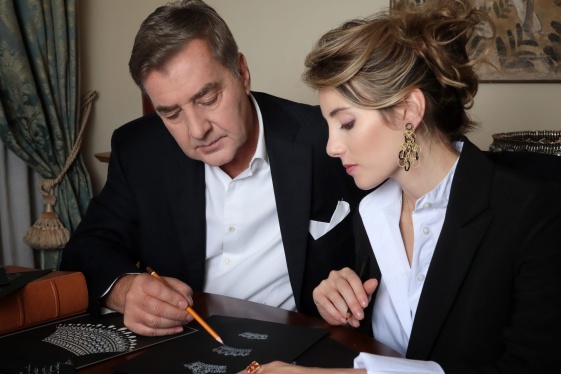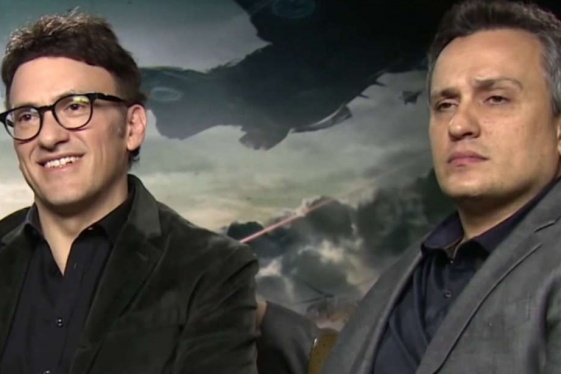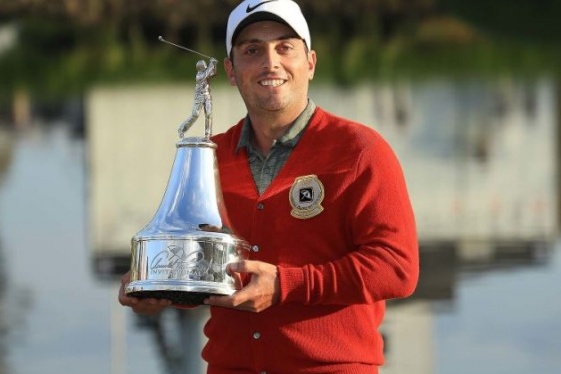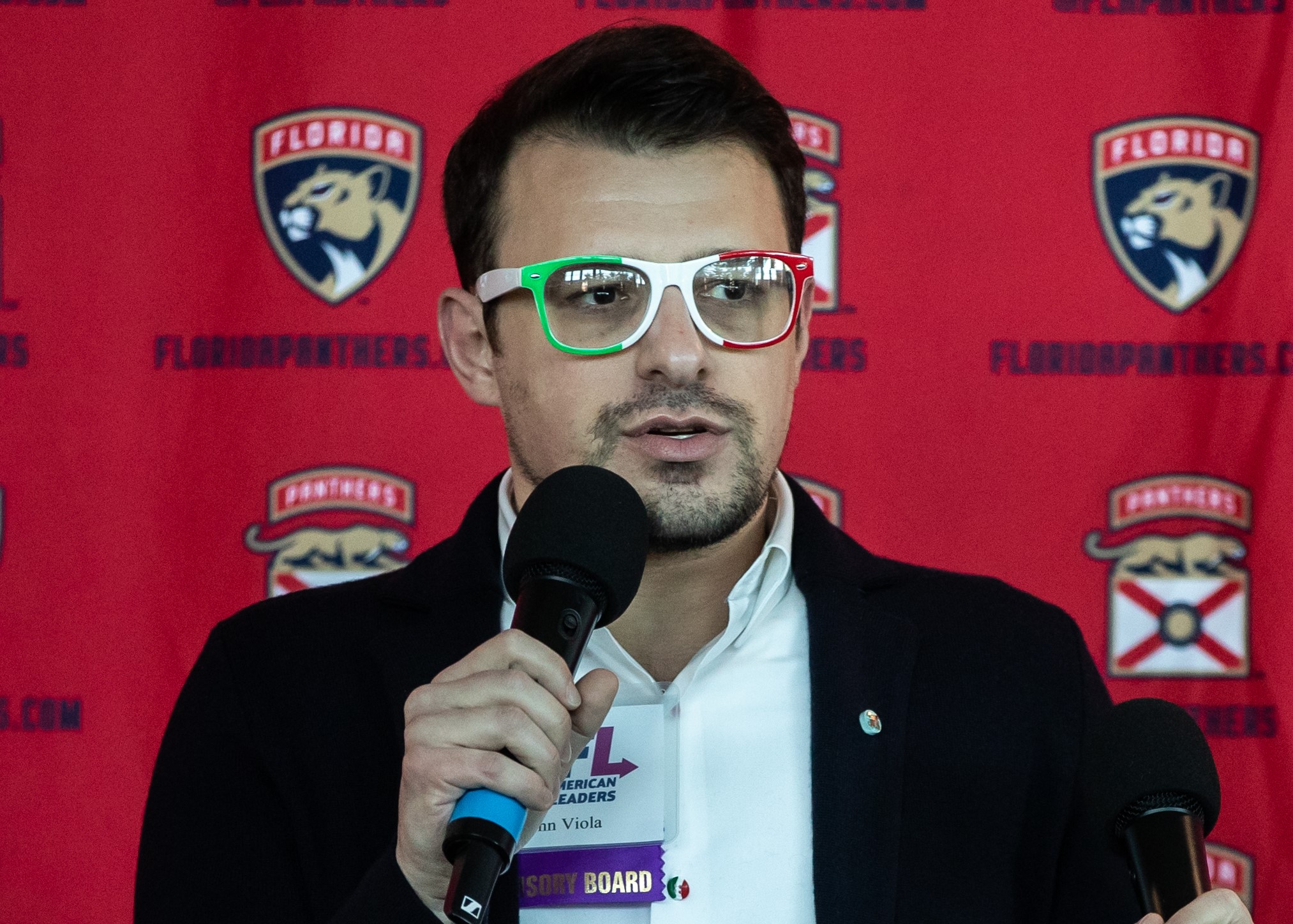
John Viola (Italian American Future Leaders)
Italian American Future Leaders: il futuro è così luminoso che dobbiamo indossare occhiali da sole tricolori!

Some time ago, while counting the number of interviews published, I realized that I was approaching the three hundredth, and that keeping the current pace I would get there with the second to be published in February 2023. That's why I'm so glad that the 300th interview of We the Italians is this one.
Because it is truly one of the most important and interesting I have ever done, because the subject matter is just wonderful, and the interviewee is someone I have the pleasure and honor to call a friend of mine. John Viola organized the Italian American Future Leaders conference, hosting it in January in Florida. I had the honor and pleasure of participating there, and it was something I will never forget, unlike anything I have ever seen. I really thank John very much and let him have the floor to describe this truly historic event, and I don't use that word casually.
Ciao John, welcome back to We the Italians. How did you come up with the idea of organizing a conference like this? You said your goal is to arrive at organizing an Italamericon, an Italian American version of a Comic-Con...
It's really a combination of a lot of ideas and initiatives from many people. From very early on in my time in the community, I always envisioned a yearly event somewhere in the country that could be the Italian American and Italian equivalent of a Comic-Con or Disney's Convention they do every year, where there are big opportunities for people, brands, and companies to come together and learn, celebrate, interact and network.
It was always a project of mine when I was at NIAF to try to regrow the Expo Italia during their Gala, which in my first year was hosted in a hallway of the hotel with 12 vendors. By the sixth year, we had hundreds of vendors from Italy and the United States with thousands of attendees. It was always a passion project for me because I felt that young people in my generation and generations ahead of me are used to that model - they don't necessarily go to the club every week or every month, but with a once-a-year massive Super Bowl of their passion, they would definitely go.
The youth conference aspect was really born from my friend and partner Pat O'Boyle, who during a Conference of Presidents of the Major Italian American Organizations (COPOMIAO) meeting last fall/winter, put a challenge out that we should be doing something that lowers the average age in the room in terms of representation of the major organizations in the Community, and that brings the next generation of leadership together so they know each other and begin to work together. This would help them to connect and give them the tools they need for when they start to become the heads of these important organizations.
And so, when Pat challenged everybody, Basil Russo asked me and Stephanie Longo - as the head of the youth committee - to put something together. I had this idea for Comic-Con in my head, so we sort of all merged together and this experimental Italian American Future Leaders was born.
I was lucky to attend the conference and I enjoyed it very, very much. Please tell our readers who was there
We chose to only solicit applications through the groups that are part of COPOMIAO, because we didn't know what to expect and we hoped to get 50 participants. We ended up getting almost 100; we had a few cancellations at the last minute, but we got about 100 young Italian Americans between the ages of 21 and 35, many of whom, much to my surprise, were already incredibly active in the national community and their local communities.
We had scholars, doctors, lawyers, we had directors of the Italian American museums, we had every profession from all walks of life and all corners of the United States. It was not just people from the traditional Little Italies, we had people from every community from Iowa to North Carolina and Colorado. It was a really amazing group of very passionate participants who clearly are already committed to leading the community now and in the future. We had some fantastic mentors like yourself and my team from the podcast, including Dolores Alfieri and Rossella Rago, “Growing up Italian,” Marianna Gatto from the Italian American Museum of Los Angeles, Ray Guarini from Italian Enclaves Historical Society, Saverio Nestico from Filitalia International, Jennifer Caito-Ellingson from the Italian American Women of Iowa and Mike De Sapio of DeSapio Dual Citizenship Services. We hand-selected these people, who were available as mentors, as well as resources and coaches. It turned out to be a perfect alchemy to create a weekend of real conviviality and good work.
Can you briefly summarize what happened during this wonderful weekend?
I went into the weekend knowing that it might change and evolve as we were there, and I tried to say that to everyone because, as one of the advisors said, this weekend was really a proof of concept. So, what we set out to do was a little different than what we ended up doing in some ways.
We welcomed everybody on Friday night with the welcoming reception, where we expected them to come and get their welcome package and leave, they ended up staying, mingling, and building relationships early.
Saturday began with Italian American trivia, which we did to separate the crowd into working teams and to give them a sense of how much they do or don't know about Italian American history, heritage, our community, and the current environment. And then we went into a SWOT analysis (strength, weakness, opportunity, threats) around how each of these small groups felt the community looked going forward into the next 10 and 20 years and asked them each to pick one critical issue and present their plans to work on them. It was very interesting to see all 10 groups of participants because many of them had overlapping visions for their most critical issues, but a lot of amazing ideas came out of it, many of which have never been tried before.
We spent Saturday night together at the Florida Panthers hockey game, which was great fun and time for me to relax and enjoy, thankfully, a win for the Panthers.
Sunday began with another round of trivia, this time about Italy, and I had planned to do another SWOT analysis around US and Italy relations based on your keynote on the Italian perceptions of Italian America and on Mike De Sapio's second keynote on dual citizenship. But then I changed my mind, and what I decided to do that morning was another activity that I've done when I hosted leadership trainings. Many of the participants, the day before, had talked about the difficulty of utilizing social media to get the message out, to unify the community, and to promote the organizations that they're part of. On Sunday morning we sent the teams out and asked them to do a social media challenge. Each team had an hour to create a 30-second commercial for next year's IAFL conference and then presented their final products to not only our participants but also to a panel of judges from some of the most successful Italian American social media pages out there: Dolores Alfieri of Bella Figura Podcast, Rossella Rago from Cooking with Nonna, and Rocco LoGuercio and Sabino Curcio from Growing Up Italian. Then, we dissected how effective their videos were.
Later on Sunday afternoon, we had wonderful keynotes from yourself and Mike De Sapio, which I thought all found very, very interesting. Then on Sunday night, we closed the weekend with what I always feel to be two of the most important touchstones of being Italian American. First of all, we had Sunday pasta, and then singing, one of my favorite activities in the world, as part of another great Italian American karaoke night. I think by the end of it, most people didn't want to leave.
Oh yes, you are right! You know, I sent a video via WhatsApp to my wife with me and my daughter singing “Felicità” by Albano and Romina, and she was asleep of course, because of the different time zones. So the next morning, she wakes up, she watches this video, and she sends me a text with a smiling emoticon saying, “Who is this guy? What did they do to you?” because I'm always too serious, you know…
Yes, I saw that too in you and your daughter… I think of so many holidays or Sundays, with my family singing with my grandparents and learning songs from them or singing with my parents and my brothers and cousins. It brings people together, and all these songs are familiar to so many of us. They're in our head, and they relax you, and signing them lets you put down your guard. I think that's what we need to do as a community, to let our guard down if we're going to work together toward solutions.
I felt this throughout the whole weekend, whereas a lot of Italian events that I participate in get very territorial, and when people disagree, nine out of 10 times they end up in kind of a decision to separate or nothing gets done. During the IAFL weekend, I felt that even though there were issues that came up that people didn't agree on, people who had strong and well-informed opinions, the spirit of the entire weekend was essentially that of a really good karaoke night. Let your guard down, give a little trust, and understand that everybody here wants to come out as friends and partners in finding solutions. And that's how the whole weekend was to me.
I am sure that it was the same for everybody! Which were the most important topics addressed, and which ones do you think should be addressed in the future?
I was surprised by the differences between my assumptions going in and what I learned going out from the participants. I was very pleasantly surprised to see, and I felt this for a long time based on my time at NIAF, that we should figure out the right ways to create better access to dual citizenship for the descendants of Italians abroad. It is an opportunity that I think the majority of those who were in Florida are interested in, and I think it's an opportunity that benefits Italians from all over the world, everyone around the diaspora. This would also benefit Italy, so I was very happy to see that that is still a very important issue to the community. I loved seeing their understanding that the future of our community and the future of Italy is one of a diasporic people. And it seems, based on your presentation and everything coming up in 2024 with the year of roots tourism, that maybe, finally, the Italian institutions are starting to see the appeal in that as well. I think these future leaders have a very different sense of "italianità” than what I grew up with, or that of my parents and certainly of my grandparents.
One of the most enlightening “aha moments” of my time doing this as a professional Italian American was their take on anti-defamation because the bottom line was one that I kind of struggled with. The older generation always pushes back against films like “The Godfather” and “Goodfellas” and all these movies, about which many of us then have to hesitantly speak up and say, “but they're beautifully crafted art, cinema,”. We spent decades and money as a community fighting against a very difficult tide, trying to shout down good entertainment, good cinema.
These future leaders I saw in Florida are not offended by those portrayals, but they're vehemently offended when those misconceptions that come from that kind of portrayal around the mafia and crime impact people's real lives as Italian Americans. And they are ready and willing to be active against such instances, and they’re looking for the community to be active. What happens is that we fight the movie premiere, and then when a wonderful hard-working Italian American gets slurred as mafioso by someone for no reason and it costs them their job or their livelihood, we as a community don't act because it's not big and public. That is where these future leaders want to act, and I think that's very wise. First, it made me feel good to understand that they care, and secondly, it made me feel great to understand that they have a more sophisticated approach to it than my generation or prior. So, I felt really, very good about that.
And of course, I think ultimately what everyone came out with was these young people, as I expected, don't really want to go to be part of a group that's going to basically sit there and pat itself on the back and criticize other groups in the community. They don't attach as much significance to what sash they wear or what group they're part of, they just want to work together for the betterment of this giant community, so they have no patience for the infighting that has wracked our community for 100 years.
Yeah, it was very interesting. It was amazing for me because I've done 300 interviews trying to understand the ideas of different leaders older than me or my age, and now I too saw, thanks to this conference, that something new is happening or maybe it already happened. I was so happy I learned something interesting and new.
I've always felt something new was happening from my earliest time in the community, maybe because I was so much younger than everybody else I was working with. Because of the unfortunate socioeconomic conditions of Italy for an extended period of time between the 1870s and 1920s, and then again after the devastation of the war, Italy was sort of forced to cut off 5-6 million of its sons and daughters, the branches of the tree, and send them scattering to the wind. For some reason, like a very hardy fig tree, those branches took root elsewhere, but maintained their Italian fruit. I feel like now those branches are starting to naturally come back together in a smaller, globalized world, where people can virtually interact.
These future leaders are not spending as much time as I may have thinking about that: they're just naturally living this because they see Italy online, they go to Italy. They're not like older generations, where it was difficult to go to Italy. If they don't know the language, they can learn it on YouTube or TikTok. Also, these future leaders are studying Neapolitan and Sicilian other regional languages, as well as standard Italian; to me, they are searching out their roots with digitized records and resources that people before them couldn't even fathom. It's almost like, at least from the Italian American perspective, we are reaching an arm out to Italy to have that branch reunited in its own way. And I am happy to see Italy reaching its own arm back so that we can grasp hands and go into the future as a global Italian community. I truly believe that's happening.
I really felt it was the beginning of something, an event that 10 years from now I’ll remember and say “I was there, when it began.” You guys did something amazing. You took a beautiful picture, and of course the picture is beautiful because of the beautiful subject, but it’s also stunning that someone “saw” that picture where nobody did before, and perfectly shot the photo.
I imagined you felt the same way I did at the end of it, which was very reinvigorated. When we planned it, obviously myself and Basil, we worked with the members of COPOMIAO, and we made a decision early on that we would ask the groups to sponsor the travel for as many participants as they wanted, but we wouldn't open up the conference to the current generational leadership, with the exception of our advisors and a few observers that asked to come. Because, frankly, I wanted to avoid those moments that I've lived through where the old outnumber the young, and as soon as the young put forth an idea, the old jump in and say, “we tried it, and it didn't work.”
I wanted to create a venue where this coming generation of future leaders was in charge of the conversation from the first moment. In some sense, I wish I could have had a soundproof tank, a viewing gallery, to put current leadership in. Because I know myself, and I would guess the same for you, and I can guarantee for all the advisors that I spoke to… that all of us have put so much of our life into this and left feeling invigorated, reenergized.
Let me tell you the quote that Pat gave me, after he came up with this challenge, as we did it on his birthday, “It was the best birthday gift I ever received, because after all these years of fighting for something I believe in, it felt great to know that it's a myth that younger people are not there and involved. Not only are they there and willing, they're better than us in many ways and they're going to have better solutions and the future is not only safe for preservation, it's going to grow.” I do wish I could have included more of the community's current leadership to see this, because it's a vaccination against the pessimism of time.
Did you have feedback from the elder leaders of the Associations that sent their very best young leaders to the conference?
I have had some. I happened to attend a National Organization of Italian American Women event where they honored Rosella Rago a few days after we returned, and I did see some of the people who explained to me that they had heard from the participants and how great everything was. I've certainly received calls from different people in the community telling me what they've heard, and what they've seen. We made an effort to be aggressive on social media. Having partners like the team from “Growing Up Italian” means that you're going to get your message out in a much more productive and widespread way. People have seen videos, they've seen photos, they've seen some descriptions, and I think we've gotten a lot of good feedback.
We've had a couple of calls with the participants, and we are already gearing up for some more events in the future. I get the sense that most of them, if the opportunity is there, will participate again with next year's class of future leaders. I've gotten good feedback, there are some things we can improve, certainly, but mostly there were a lot of people who were pleasantly surprised that we were able to do what we set out to do.
I understand that you guys at the Italian American Future Leaders have already decided to make this an annual event, am I right?
We certainly intend to, but we still have to raise some of the money, so I’ll be happy if any of your readers want to contribute to a long-term endowment for this. What we're going to do is to go out and raise money in two ways.
First, my family and I have committed to hosting the event at the FLA Live arena or one of our facilities down in Florida for the next four years, so for five years total. The big part of any event is having the space and the food, and fortunately we can provide that. Mr. Russo thinks that, between him and myself and our team of advisors, we will be able to raise the necessary funds each year for the next four years, as well as concurrently go out and look to identify donors who want to make substantial gifts to the long-term endowment, so that in the future, this event will always be self-sustaining.
Once that happens, I feel less pressure to have it in Florida, because I would love it to move around the country to where Italian enclaves exist and be able to not only give people a chance to see different places but interact with those communities. Frankly, if we feel like the money is there in an endowment and the operation can pay for itself, it's a lot easier to quickly turn the leadership over to the younger generation, because we've saved them the headache and the risk.
That's our goal, we know we've committed for five years, and I believe in my heart that it should be here 50 years from now and I think it will be. I think there's a lot of goodwill and a lot of positive participation from it. My hope is that five years from now, that would be 2028, we could say, “Next year IAFL 2029 is going to be held in Boston or Los Angeles or Arthur Avenue in the Bronx,” whatever it is, and begin taking the show on the road and being in Italian America with the conference.
I learned a lot from the conference, and so did my daughter who was there representing the students who attended a project by the Italian institution Centro Studi Americani and co-sponsored by the Conference of the Presidents of the Major Italian American Organizations. What did you learn?
That's a great question. I learned that the next generation that everybody says is disinterested is very interested. I expected to see a lot of raw clay, people who cared about their heritage but who weren't participating in organizations, but what I actually found was that the majority of the participants were already very active and successful leaders on a local level and some on a national scale.
I learned that when you're asked to bring in a new generation or a new segment of the population or new attendees, whatever it is, the only way to really do that successfully is to listen and ask questions and take note of how they want to participate. If you go out and dictate, “this is your role, you're in the youth committee,” or whatever it is, you're going to frustrate really good and really thoughtful energy, and you're going to stifle creativity.
And I learned that the future for Italian America is evolving and bright and unique, I think, even after 150 years in this country.
After the great success of this event, what happens now? The message you’re giving is fantastic, to me, because it comes from your heart and because it’s definitely the right thing to do. But how do you let these future leaders “stay together” across the country from now to January 2024?
Well, I think one of the things we wanted to do was to gather from the participants how they envision going forward, because what I wanted to avoid was setting up the same old, “we have a monthly meeting and then it's a responsibility” mentality. I think we got a lot of feedback that said they do want to participate regularly, they do now see themselves as the sort of founding mothers and fathers of a new energy in the community.
I think that we're going to start to do some Zoom summits, so that people can interact with each other, but also start to assume real roles within this new entity. We're looking at maybe doing an event in Ohio in July, that has come to the attention of Mr. Russo, which would be a chance for people to just enjoy one another and maybe have a follow-up meeting in person, six months after the event, six months before next annual conference.
We've collected their emails, their social media accounts, and their content information. We've got them in Facebook and LinkedIn groups. As this is the first year, we'll probably do some more frequent virtual meetings. We're also hearing from them that they're starting to meet with one another, and other young Italian Americans in their communities where they're geographically located. I think that the consensus from there was on creating sort of geographic groupings so that people can participate on their own and do their own things, but still be in in this confederacy of the IAFL, if you will. I think that's going to be something that we start to codify very soon.
Let me end with the question I asked the audience at the IAFL conference. You do many things for Italy. What can Italy do for you?
I think that the Italy of the institutions can give us access to conversations with the right leadership that actually makes decisions, who can come and participate as observers, listen and see for themselves. I also think that Italy desperately needs to reexamine the massive undertaking that it is to get dual citizenship. In the Republic of Ireland, if you've got one Irish grandparent, no questions about their naturalization, if you can prove you have one ancestor, in six months you'll have an Irish passport. It takes years in Italy and it's stifling and frustrating and the Italian government is not even asking for anything. I think they could ask for a tax or a yearly contribution. I think that it would be beneficial for both countries.
I also think that Italy, the Italy of the institutions, can address the fact that countries like France put tens, if not hundreds, of millions of dollars into education, into their schools around the world. Italy needs to be more aggressive about its outreach and its reintegration of this diaspora from an institutional perspective.
And I think that the Italy of the street, the Italian people, can take a deep breath and reexamine how it views its diaspora. Because I think a lot of people fall into this terrible trap of saying, “Well, you're not Italian and you're not authentic,” “Could you do this differently?” or “You say this differently.” I understand this, I do. We are involved in a third way, that's not purely Italian of today and not purely American of today, but that doesn't qualify or disqualify any authenticity. I think that the Italy of the of society needs to look at us anew and understand that we don't want anything but to be part of something that is by genetics our heritage of thousands of years. We're not asking for any advantage, we're not asking to take anything, we're not asking to change anything in Italy, we just want something to be returned… some part of our humanity, frankly, to be returned to us, our heritage.
You may be interested
-
In sordina, l’Italia ritorna in scena al Nat...
La presenza italiana a Natpe 2016, la principale fiera Tv per il mercato Latino Americano...
-
Italian Artists Featured at Miami’s Home Des...
Two prominent Italian artists now living in South Florida will be exhibiting their art as...
-
Meet and Greet with the NEW Italian American...
Thursday, february 5 - 6 pmCatering Revolution - NW 440 Peacock Blvd, Port St. Lucie...
-
Ybor City – Florida’s Little Italy
"The people who had lived for centuries in Sicilian villages perched on hilltops for prote...
-
'A piece of my family:' The Southern Italian'...
Hey Foodies! You know their sausage, but how about the classic, mouthwatering flavors of a...
-
'A small New York': Palm Beach to become home...
Miami-born and Italy-raised, jewelry designer and accomplished equestrian Lucrezia Buccell...
-
'Avengers: Infinity War' Directors Inducted I...
The Russo Brothers were a pair of the Marvel Cinematic Universe's best directors even prio...
-
'Best putting round ever' lifts Molinari to B...
Francesco Molinari clinched a two-stroke victory at the Arnold Palmer Invitational when he...





